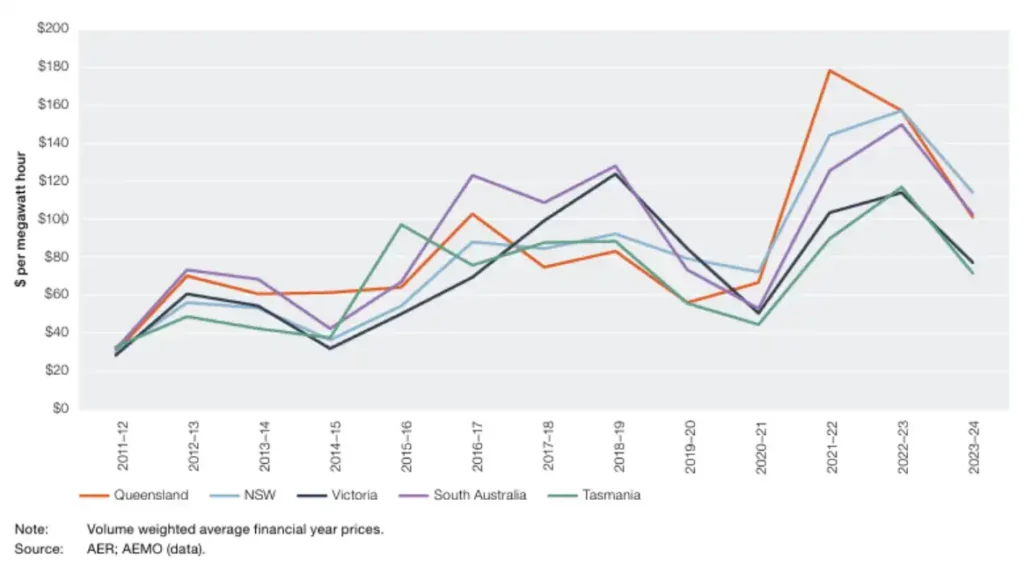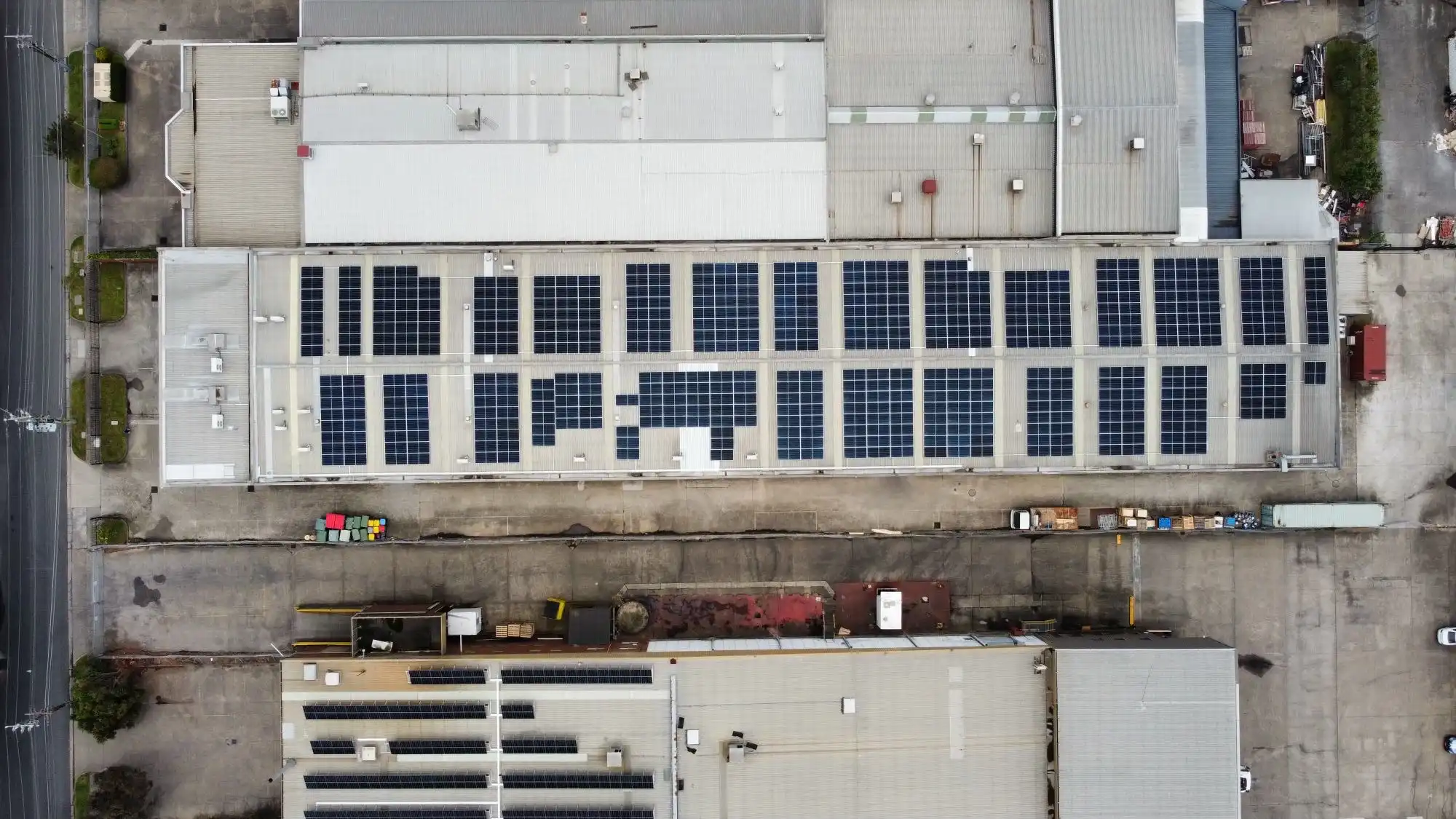Printing equipment – printers, photocopiers and scanners – require a lot of energy to run. For PhotobookShop, a Victoria-based printing retailer, high energy bills have always just been part of doing business.
As the company has grown over the last 16 years, from a small local outfit to Australia’s leading manufacturer of Photobooks with more than 50 staff, their energy expenditure has naturally risen as well.
Unfortunately, those price rises have been incredibly unpredictable and volatile.
Figure 1: Annual wholesale prices, financial year

Source: State of the Energy Market 2024, Australian Energy Regulator
Project snapshot
Industry: Printing
Channel Partner: Chase Renewables
Solar system size: 172kW
Equipment:
- 310x Longi solar panels
- 2x Sungrow inverters
Payment Plan term: 5 years
For any business, rollercoaster wholesale energy prices make forecasting annual operating expenses (OPEX) extremely difficult – and long-term planning even harder.
The solution
In early 2025, founder Peter Thomas decided it was time to take control of PhotobookShop’s energy costs. With a strong understanding of customer values and an eye on long-term sustainability, he saw an opportunity to make a smart business decision that also supported the environment.
“We’re always looking for ways to operate more sustainably while reducing long-term costs. Investing in solar was a smart move both environmentally and financially – it aligned perfectly with our values and goals as a business.”
– Peter Thomas, Founder, PhotobookShop
Peter engaged Chase Renewables, one of Victoria’s leading commercial solar installers, to assess the company’s Reservoir headquarters. With a large flat roof, the warehouse was well suited to a rooftop solar system capable of offsetting a significant portion of the business’s energy use.
Chase Renewables recommended a system made up of 310 Longi solar panels and two Sungrow inverters, with a total system size of 172kW.
The recommended system would generate major long-term savings — but came with a considerable price tag.
To remove the upfront cost barrier, Chase Renewables suggested a Smart Ease Payment Plan, which allowed the project to proceed with zero upfront outlay while helping to manage cash flow.
“It allowed us to implement the project without the upfront capital outlay, so we could start seeing the benefits of solar straight away while preserving cash flow for other priorities.”
– Peter Thomas
The win
The system was installed in October 2024 and is working exactly as expected. According to Peter, the drop in energy bills has been significant.
Less than a year into the solar investment, he’s already considering adding a battery to boost energy independence and increase savings even further.
By reducing dependence on the grid, PhotobookShop now has greater visibility and control over future energy expenditure – all while reducing its carbon footprint and aligning more closely with its sustainability goals.
Start a conversation with Smart Ease and find out how our Payment Plans can help you meet sustainability goals and save on energy costs.

